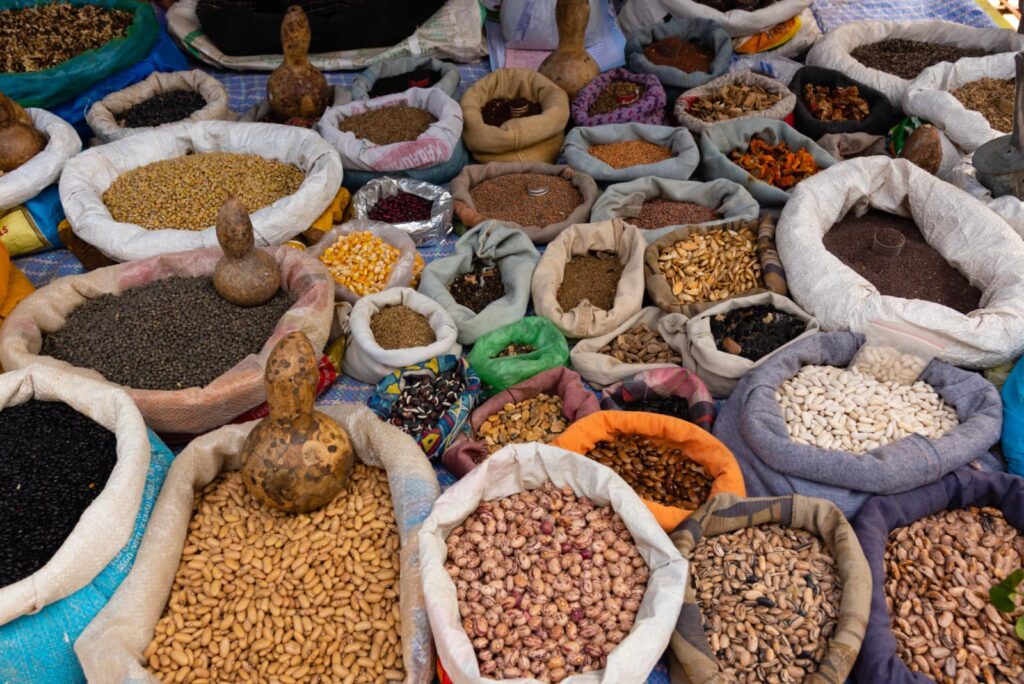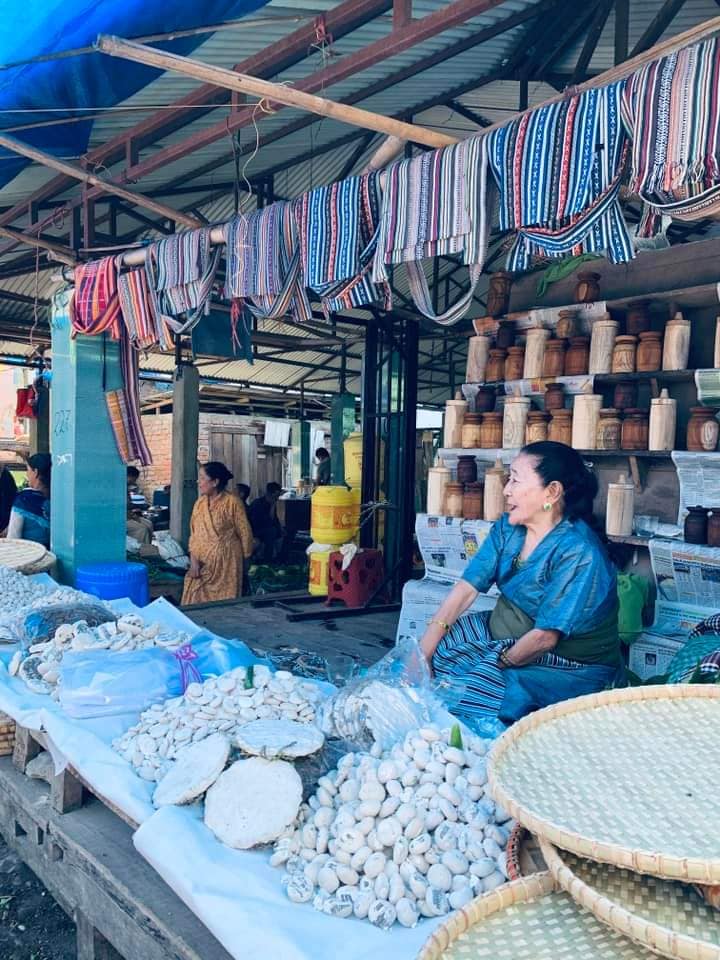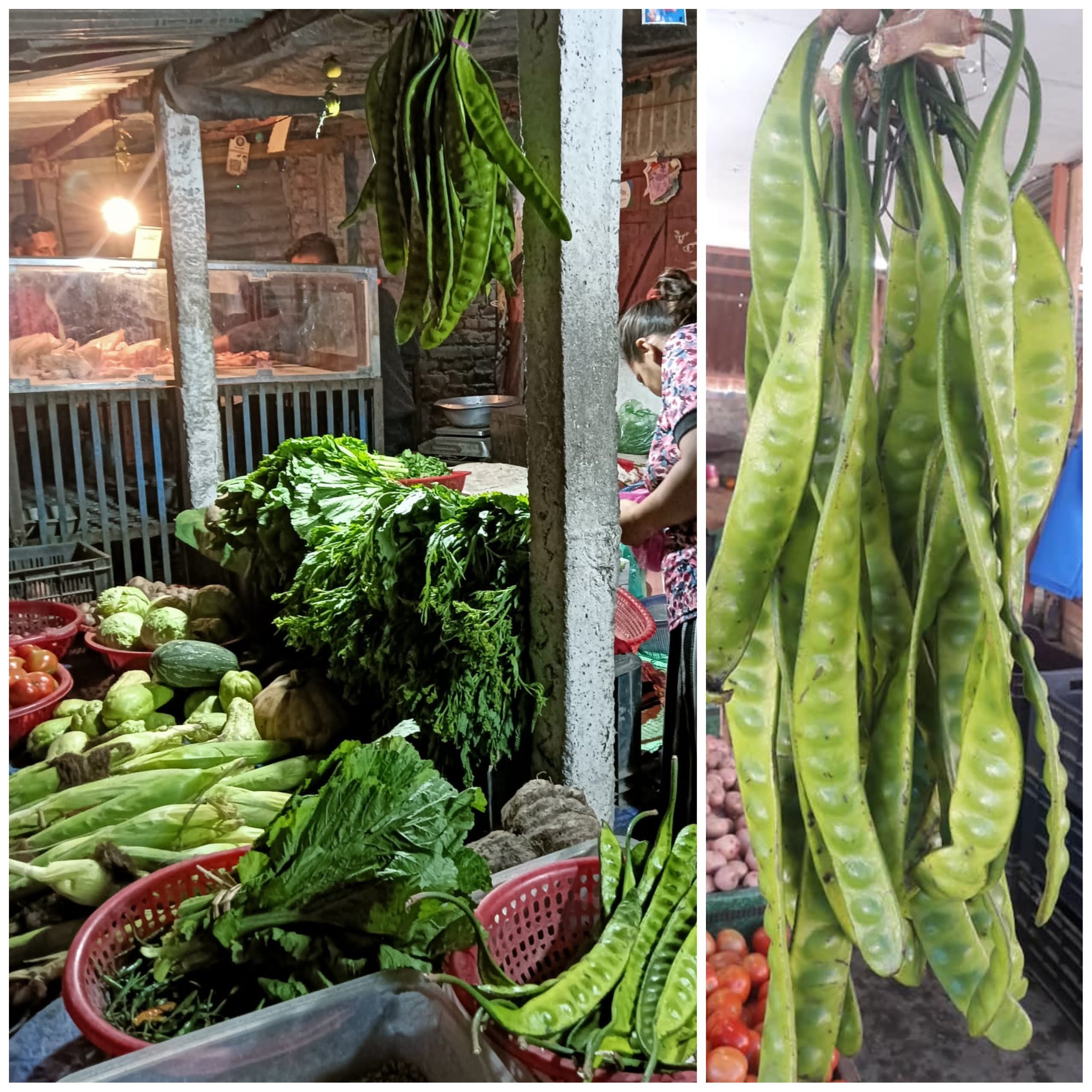Revival of the Kalimpong Bihibare Haat
WhatsApp Channel
Join Now
The recent reopening of the Kalimpong Bihibare Haat (Thursday market), after a gap of 30 years is gaining attention for its unique focus on selling only organic and locally made products.
The regular Haat still operates on Wednesdays and Saturdays, but the Bihibare Haat, which has started operating on Thursdays, has become a popular topic in the town due to its commitment to local goods.
A joint initiative between the Kalimpong Municipality and Akash Foundation, this market emphasizes “vocal for local” values among residents of the Kalimpong area. This effort not only promotes sustainability and supports local businesses but also showcases true Gorkhali culture. Prohibition of non-local items from being sold at the Bihibare Haat has gained significant attention and praise in the community.
The Haat offers opportunities for individuals to achieve self-reliance and helps locals develop entrepreneurial abilities while promoting local pride. It aims to provide a platform for skilled farmers and artisans who can produce organic goods but lack a suitable market. Artisans, who previously created items solely as a display of their skills, now have access to a marketplace where they can sell their unique products.

As a result of this initiative, the Haat has become busier on Thursdays when it was once empty. It is quickly becoming a vital source of sustenance for local villages, stimulating the economy and providing residents with hope. Kalimpong’s Haat Bazar which is already popular among tourists, is gaining more popularity with the start of the Bihibare Haat. Tourists are encouraged to explore the vibrant market to gain insight into the hill people’s culture and purchase locally made items.

 The Haat’s successful start is partly attributed to support from permanent market dwellers, without whom it would have been a difficult endeavour. An interesting aspect of products originating from Darjeeling or Kalimpong hills is that they often return after circulating the valley areas. However, the Bihibare Haat would enable direct sales within the community, reducing costs and offering healthy items. Many villagers no longer consider selling their products to exporters due to the newfound opportunities in selling their locally produced goods within the community to their own people.
The Haat’s successful start is partly attributed to support from permanent market dwellers, without whom it would have been a difficult endeavour. An interesting aspect of products originating from Darjeeling or Kalimpong hills is that they often return after circulating the valley areas. However, the Bihibare Haat would enable direct sales within the community, reducing costs and offering healthy items. Many villagers no longer consider selling their products to exporters due to the newfound opportunities in selling their locally produced goods within the community to their own people.
The Haat’s opening day attracted a large number of visitors, many of whom came to explore the vibrant atmosphere reminiscent of a major cultural festival. The enthusiastic sellers showcased their Gorkhey heritage by wearing traditional attire, emphasizing the market’s identity – ‘The Gorkhey Haat”. The festive spirit was so infectious that both sellers and buyers were seen singing songs expressing gratitude for the inauguration of the Haat.

As visitors stroll through the Bihibare Haat, they encounter lively sights and sounds from various backgrounds and indulge in the enticing aromas of fresh local produce. From now onwards, every Thursday, local traders would offer a diverse range of products including authentic food items, groceries, and unique specialties.
Organic products from Darjeeling were also available, with the famous brand Rimbick Fresh offering their packaged goods at the Bihibare Haat stall. Among the most exciting local cuisine was the veg momos made of millet (kodo ko momo).


In addition to food items, visitors could find organic soaps and shampoos made from natural ingredients such as Hibiscus (Jabha Phool), Mugwort (Titepati), and Sting Nettle (Sisno). Locally made cutlery items were also on display along with many handmade products that showcased traditional craftsmanship.
Telegram Channel
Join Now


